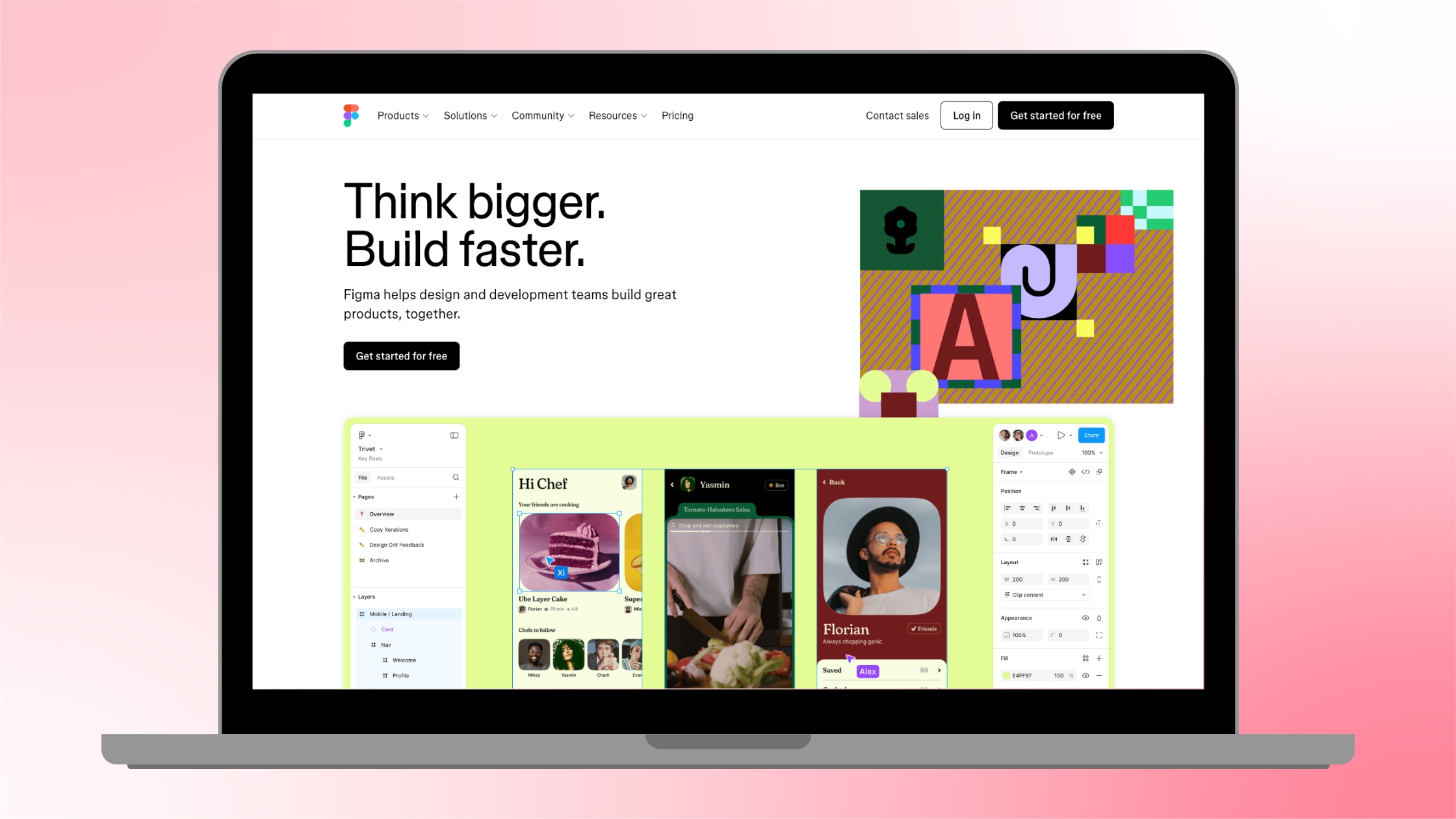Welcome to your Comprehensive Guide to Mastering Digital Marketing in 2024. If you find yourself intrigued by the vast opportunities that digital marketing offers but feel overwhelmed by the sheer breadth of the field, you’re not alone. In this comprehensive guide, we’ll demystify the world of digital marketing and provide actionable insights that will empower you to navigate this dynamic frontier with confidence and success.
Chapter 1:
Understanding the Digital Marketing Ecosystem
Digital marketing requires a solid understanding of the multifaceted ecosystem it encompasses. This chapter will delve deeper into each key facet, providing actionable insights to equip you with the foundational knowledge needed to navigate this dynamic landscape effectively.
Social Media Marketing (SMM)
Social media platforms are not just spaces for socializing; they’re powerful tools for brand promotion and audience engagement. Begin by identifying the platforms most relevant to your target audience. Whether it’s the visually-driven Instagram, the conversational Twitter, or the professional network LinkedIn, each platform has its unique strengths. Understand the nuances of creating compelling content, engaging with your audience, utilizing analytics, and running effective ad campaigns.
Actionable Tip: Experiment with different types of content—images, videos, polls, and stories—to gauge audience response. Use analytics tools provided by each platform to track engagement metrics and refine your strategy accordingly.
Search Engine Optimization (SEO)
SEO is the backbone of digital visibility, ensuring your content is discoverable on search engines like Google. Dive into the basics of keyword research, understanding user intent, and optimizing on-page elements such as meta titles, descriptions, and headers. Stay informed about search engine algorithm updates and adapt your strategy accordingly.
Actionable Tip: Utilize keyword research tools like Google Keyword Planner or Ubersuggest to identify high-value keywords for your content. Regularly audit and update your content to align with the latest SEO best practices.
Content Marketing
Content is the currency of the digital realm. Master the art of crafting compelling stories across various formats—blog posts, videos, infographics, and podcasts. Understand your target audience’s pain points and interests, tailoring your content to resonate with them. Learn the importance of a content calendar for consistency and how to measure the success of your content through engagement and conversion metrics.
Actionable Tip: Develop a content calendar that aligns with your overall marketing strategy. Experiment with different content formats to see what resonates most with your audience.
Email Marketing
Despite being one of the oldest forms of digital communication, email marketing remains a potent tool for nurturing leads and fostering customer relationships. Learn to build and segment email lists effectively, create personalized and engaging campaigns, and utilize analytics to measure performance. Understand the importance of optimizing for mobile devices and crafting compelling subject lines to increase open rates.
Actionable Tip: Implement A/B testing for different elements of your email campaigns, such as subject lines, content, and calls-to-action. Use the insights gained to refine your future email marketing efforts.
Paid Advertising
In the crowded digital space, paid advertising provides a way to cut through the noise and reach your target audience directly. Platforms like Google Ads and Facebook Ads offer intricate targeting options. Learn the fundamentals of setting budgets, creating compelling ad copy, and analyzing key performance indicators (KPIs) to optimize your campaigns.
Actionable Tip: Start with a modest budget to test the effectiveness of different ad creatives and targeting options. Use the data to refine and scale your advertising efforts over time.
Summary
Understanding the digital marketing ecosystem is akin to having a map before starting a journey. Social media marketing, SEO, content marketing, email marketing, and paid advertising are the key landmarks on this map.
By mastering each facet, experimenting with different strategies, and staying adaptable to industry changes, you effectively equip yourself with the essential tools to navigate the digital frontier. In the following chapters, we’ll delve deeper into these areas, providing practical tips and insights to help you become a proficient navigator in the vast and dynamic world of digital marketing.

Chapter 2:
Embrace Continuous Learning
In the fast-paced world of digital marketing, the only constant is change. To truly master the art and science of online promotion, you must adopt a mindset of continuous learning. Here, we delve deeper into this crucial aspect, providing actionable insights that will not only keep you afloat but will also propel you forward in your digital marketing journey.
Follow Industry Thought Leaders
Digital marketing gurus and industry leaders are the trailblazers who navigate the evolving landscape with finesse. Follow them on social media, subscribe to their blogs, and devour their insights. Engage with their content, ask questions, and participate in discussions. This keeps you informed about the latest trends and allows you to absorb wisdom from those who have mastered the craft.
Actionable Tip: Create a Twitter list or use a social media management tool to organize and keep track of industry thought leaders. Regularly check this list to stay updated on their latest posts and engage in conversations.
Read Relevant Blogs and Publications
Blogs are gold mines of practical knowledge. Identify reputable blogs and publications in the digital marketing sphere and make them part of your daily reading routine. Look for case studies, actionable tips, and in-depth analyses that provide a deeper understanding of various strategies and tactics.
Actionable Tip: Use RSS feeds or subscribe to newsletters aggregating the latest articles from your favorite digital marketing blogs. Set aside dedicated time each week to read and absorb the insights shared by experts.
Attend Webinars and Virtual Events
Webinars and virtual events offer an immersive learning experience without the need for travel. Many industry experts host webinars to share their knowledge and answer questions. Attend these events to gain firsthand insights, and be bold about asking questions during Q&A sessions.
Actionable Tip: Keep a calendar of upcoming webinars and virtual events related to digital marketing. Participate actively by taking notes, asking questions, and connecting with other attendees.
Enroll in Microlearning Platforms
Microlearning is a trend that fits perfectly with the fast-paced nature of digital marketing. Platforms like ShyCowboy offer bite-sized courses that allow you to learn on the go. These courses cover specific topics, providing actionable insights that you can immediately apply to your campaigns.
Actionable Tip: Create a weekly microlearning schedule. Dedicate short, focused sessions to specific topics, ensuring you consistently build your knowledge over time.
Join Online Communities
Digital marketing is a collaborative field, and online communities provide a space for professionals to share experiences, seek advice, and discuss industry trends. Join forums, Facebook groups, and other community platforms to connect with like-minded individuals.
Actionable Tip: Actively participate in discussions within online communities. Share your experiences, ask questions, and seek advice. The diverse perspectives of community members can provide valuable insights and solutions to challenges you may encounter.
Summary
Embracing continuous learning is not just a recommendation but a necessity in the dynamic world of digital marketing. By following industry thought leaders, reading relevant blogs, attending webinars, enrolling in microlearning platforms, and joining online communities, you position yourself as a proactive learner ready to adapt to the ever-changing landscape.
Remember, it’s not about acquiring knowledge in isolation but actively applying it to your digital marketing endeavors. Stay curious, stay engaged, and let the continuous learning journey be the driving force behind your success in digital marketing.
Chapter 3:
Hands-On Experience
Theory is the foundation, but the real magic happens when theory meets practice. Hands-on experience is the crucible where your digital marketing skills are forged and refined. In this chapter, we’ll delve deeper into the importance of hands-on experience, providing actionable insights and practical tips to ensure you not only understand the concepts but can also implement them effectively.
Start Your Own Blog or Website
One of the most effective ways to gain hands-on experience is by starting your own blog or website. This serves as your digital marketing playground, where you can implement various strategies and observe their impact. Choose a niche you are passionate about, create valuable content, and optimize your site for search engines.
Actionable Tip: Use platforms like WordPress or Wix to set up your blog. Experiment with different types of content, from blog posts to videos, and optimize your site’s SEO by incorporating relevant keywords.
Engage on Social Media Platforms
Social media is not just a place to connect with friends; it’s a powerful tool for digital marketing. Create profiles on platforms relevant to your target audience and industry. Experiment with posting schedules, content formats, and engagement strategies. Analyze the performance metrics to understand what resonates with your audience.
Actionable Tip: Develop a social media content calendar to maintain consistency. Utilize analytics tools on platforms like Facebook and Instagram to track engagement, reach, and audience demographics.
Run Small-Scale Ad Campaigns
Digital advertising is a crucial aspect of modern marketing. Platforms like Google Ads and Facebook Ads offer user-friendly interfaces that allow you to create and run small-scale campaigns. Experiment with different ad formats, targeting options, and budgets to understand how each variable affects campaign performance.
Actionable Tip: Set a small budget initially to minimize risk. Test different ad creatives and audience segments, closely monitoring metrics like click-through rates (CTR) and conversion rates.
Implement SEO Strategies
Understanding SEO is fundamental to digital marketing success. Apply SEO strategies to your blog or website by conducting keyword research, optimizing meta tags, and building high-quality backlinks. Track your site’s ranking on search engine results pages (SERPs) and make adjustments based on performance.
Actionable Tip: Use tools like Google Analytics and Google Search Console to monitor your site’s performance. Regularly update and refresh your content to maintain relevance and improve SEO.
Build and Segment Email Lists
Email marketing remains a powerful tool for building and nurturing relationships with your audience. Start building an email list from day one, and experiment with different lead magnets and opt-in strategies. Segment your email list based on demographics, behaviors, or interests to send targeted and relevant content.
Actionable Tip: Use email marketing platforms like Mailchimp or HubSpot to automate campaigns and analyze performance metrics. A/B test subject lines, content, and send times to optimize your email campaigns.
Summary
Hands-on experience is the bridge between theory and mastery in digital marketing. By starting your own blog, engaging on social media, running small-scale ad campaigns, implementing SEO strategies, and building segmented email lists, you solidify your understanding and develop the practical skills required for success in the digital world.
Remember, the key is to learn from your experiences, adapt your strategies based on performance data, and consistently refine your approach. As you navigate the digital landscape with a hands-on mindset, you’ll find that your confidence and expertise in digital marketing grow exponentially.

Chapter 4:
Leverage Online Courses and Certifications
In the ever-evolving digital marketing landscape, staying ahead of the curve requires a commitment to continuous learning. Online courses and certifications are invaluable resources that provide structured learning paths, offering in-depth knowledge and practical insights. Let’s delve deeper into this chapter, exploring how you can leverage these resources to enhance your skills and gain a competitive edge in digital marketing.
Choose Courses Aligned with Your Goals
The digital marketing sphere is vast, encompassing various channels and strategies. Before diving into online courses, identify your specific goals and areas of interest. Whether it’s mastering SEO, delving into social media marketing, or understanding the intricacies of email campaigns, selecting courses aligned with your objectives ensures focused and relevant learning.
Actionable Tip: Create a roadmap outlining your digital marketing goals. Match each goal with specific courses or certifications that cover the relevant skills and knowledge needed to achieve them.
Explore Free and Paid Platforms
The beauty of online learning lies in its accessibility. Numerous platforms offer a plethora of courses, ranging from free introductory modules to comprehensive paid programs. Explore both free and paid options to find the balance that suits your budget and learning preferences.
Actionable Tip: Platforms like ShyCowboy often provide a combination of free and premium courses. Begin with free courses to gauge the platform’s style and content quality before considering paid options for more in-depth learning.
Complete Certifications for Credibility
Digital marketing certifications not only enhance your skill set but also add credibility to your profile. Recognized certifications, such as Google Ads or HubSpot Content Marketing, validate your expertise and can be valuable assets when seeking employment or collaborating with clients.
Actionable Tip: Research industry-recognized certifications relevant to your niche. Prioritize completing certifications that align with your career goals and the specific areas of digital marketing you want to specialize in.
Establish a Learning Schedule
Consistency is key when pursuing online courses. Create a realistic learning schedule that fits into your daily or weekly routine. Setting aside dedicated time for learning ensures that you progress steadily and absorb the material effectively.
Actionable Tip: Treat your learning schedule with the same importance as other work commitments. Use calendar reminders, task management apps, or online learning platforms’ scheduling features to stay on track.
Apply Knowledge through Practical Projects
While theoretical understanding is essential, the true test of your learning is your ability to apply knowledge in real-world scenarios. Supplement your online courses with practical projects—implement strategies learned in the courses on your blog, social media accounts, or personal projects.
Actionable Tip: Create a portfolio showcasing the projects you’ve completed during your online courses. This not only reinforces your learning but also serves as tangible evidence of your practical skills.
Conclusion
Leveraging online courses and certifications is a strategic move in your digital marketing journey. By selecting courses aligned with your goals, exploring both free and paid platforms, completing certifications for credibility, establishing a consistent learning schedule, and applying knowledge through practical projects, you ensure a well-rounded and hands-on learning experience.
Remember, the digital marketing landscape is dynamic, and continuous learning is your key to staying ahead. Equip yourself with the knowledge and skills gained from online courses, and let your expertise shine in the ever-evolving world of digital marketing.
Chapter 5:
Network with Industry Professionals
Building a network within the digital marketing industry is akin to forging alliances on the frontier. In this interconnected world, relationships and collaborations play a pivotal role in personal and professional growth. Let’s delve deeper into Chapter 5, exploring actionable strategies to connect with industry professionals, share experiences, and gain valuable insights that can elevate your digital marketing journey.
Join Relevant Online Communities
The digital marketing landscape is brimming with online communities where professionals share insights, ask questions, and engage in discussions. Platforms like LinkedIn Groups, marketing forums, and niche-specific communities offer fertile ground for networking. Join groups aligned with your interests and actively participate in conversations.
Actionable Tip: Dedicate time each week to engage with discussions in online communities. Share your experiences, seek advice, and contribute valuable insights to establish your presence within the community.
Attend Virtual and In-Person Events
Digital marketing conferences, webinars, and meetups provide opportunities to connect with industry professionals both virtually and in person. Attend events relevant to your niche, where you can learn from experts, participate in panel discussions, and network with like-minded individuals.
Actionable Tip: Create a strategy for attending events by setting specific goals, such as connecting with a certain number of professionals or attending specific sessions. Follow up with contacts made during events to strengthen connections.
Leverage Social Media Platforms
Social media is not only a tool for marketing but also a powerful platform for networking. Follow industry professionals, engage with their content, and participate in relevant conversations. Platforms like Twitter and LinkedIn are particularly conducive to building professional relationships.
Actionable Tip: Set aside time for daily engagement on social media. Share industry news, comment on posts, and connect with professionals whose content resonates with you. Personalize connection requests to express your interest in their work.
Collaborate on Projects
Collaborative projects provide an excellent opportunity to forge deeper connections with industry professionals. Seek out opportunities to collaborate on content, webinars, or joint ventures. Not only does this expand your network, but it also allows you to learn from others and showcase your skills.
Actionable Tip: Actively look for collaboration opportunities within online communities or through direct outreach. Propose mutually beneficial projects that align with both parties’ goals and expertise.
Offer Value and Be Genuine
Networking is a two-way street, and genuine interactions are paramount. Instead of approaching professionals solely with the intention of gaining something, focus on offering value. Share your insights, help solve problems, and be genuinely interested in others’ work. Authentic connections lead to more meaningful and lasting relationships.
Actionable Tip: Before reaching out to someone, take the time to understand their work and contributions. Craft personalized messages that express your genuine interest in their expertise and share how you believe a connection could be mutually beneficial.
Summary
Building a network within the digital marketing community is not just a task—it’s a strategic investment in your professional growth. By joining online communities, attending virtual and in-person events, leveraging social media, collaborating on projects, and offering genuine value, you position yourself at the heart of a dynamic and supportive network.
Remember, networking is not just about the quantity of connections but the quality of relationships. Nurture these connections over time, and you’ll find that the insights, opportunities, and collaborations that arise from a robust professional network can significantly contribute to your success in the expansive and ever-evolving world of digital marketing.

Final Thoughts
As we conclude this exploration of the digital marketing ecosystem, it’s essential to translate knowledge into action. The digital frontier is dynamic, and your ability to adapt and apply these insights will determine your success in the ever-evolving landscape. Here are actionable items to implement as you embark on your digital marketing journey:
- Create a Social Media Content Calendar: Develop a content calendar for your chosen social media platforms. Plan and schedule posts in advance, ensuring a consistent and engaging online presence. Experiment with different types of content to identify what resonates best with your audience.
- Conduct Regular SEO Audits: Regularly audit your website’s SEO performance. Use tools like Google Analytics and Google Search Console to identify opportunities for improvement. Stay informed about SEO trends and algorithm updates to adapt your strategy accordingly.
- Develop a Content Strategy: Craft a comprehensive content strategy that aligns with your business goals. Identify your target audience, address their pain points, and create content that adds value. Implement a content calendar to maintain consistency in your publishing schedule.
- Optimize Email Marketing Campaigns: Implement A/B testing for your email campaigns. Experiment with different subject lines, content formats, and calls-to-action to identify the most effective elements. Regularly clean and segment your email lists to ensure targeted and personalized communication.
- Experiment with Paid Advertising: Start small with paid advertising campaigns on platforms like Google Ads or Facebook Ads. Test different ad creatives, targeting options, and budgets. Analyze the performance metrics to refine and scale your advertising efforts over time.
- Join Digital Marketing Communities: Engage actively in digital marketing communities and forums. Share your experiences, seek advice, and contribute insights. Building relationships within the industry can lead to valuable collaborations and a deeper understanding of industry trends.
- Attend Virtual and In-Person Events: Create a strategy for attending virtual and in-person events. Set specific networking goals and follow up with contacts made during these events. Stay informed about upcoming conferences and webinars to continually expand your industry knowledge.
- Enroll in Relevant Online Courses: Identify online courses and certifications aligned with your digital marketing goals. Establish a consistent learning schedule and apply the knowledge gained through practical projects. Certifications not only enhance your skill set but also add credibility to your profile.
Remember, the journey into digital marketing is both a learning experience and an adventure. Stay curious, adapt to changes, and actively apply your knowledge. By consistently implementing these actionable items, you’ll not only navigate the digital frontier with confidence but also position yourself for sustained success in the ever-evolving world of digital marketing. Happy navigating!


